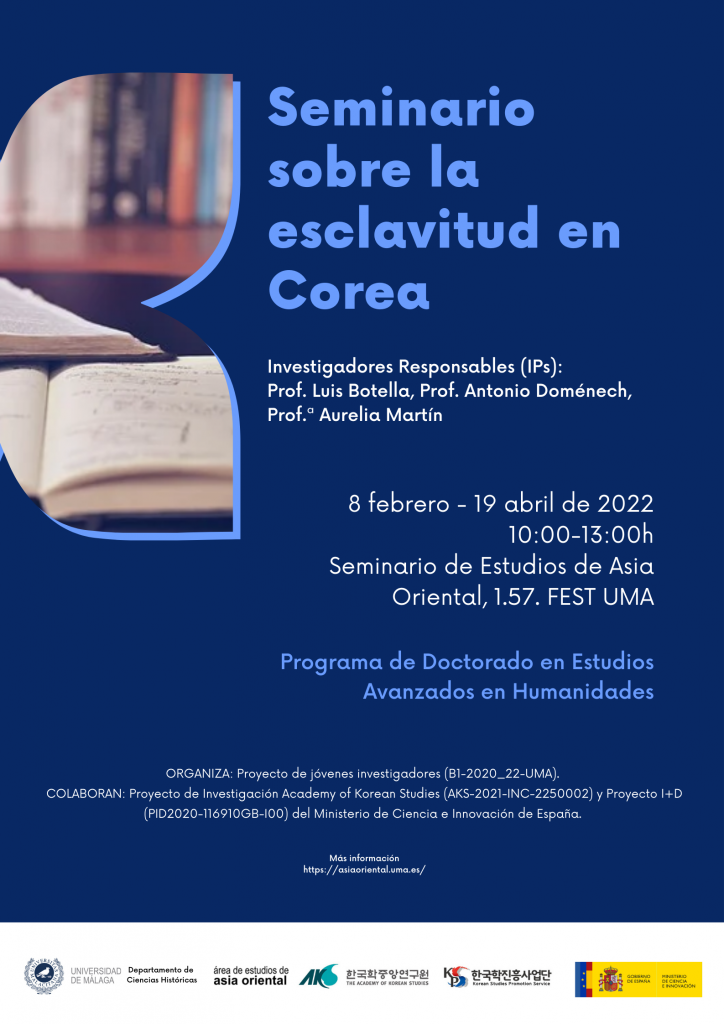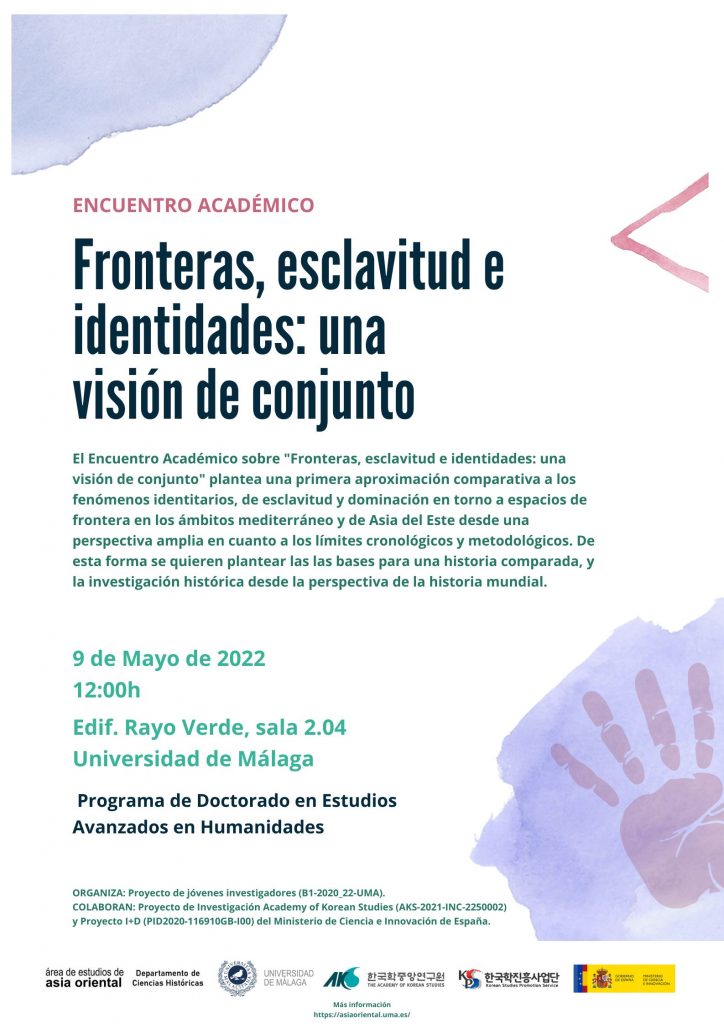SEMINAR ON SLAVERY IN KOREA (16th-20th century)
Between February 8 and April 19, the East Asian Studies Area offers a seminar that will provide, over 5 sessions, a critical approach to the main studies on slavery in the Joseon dynasty along with a review of the documentary typology worked on in the different studies. This seminar aims to familiarize participants with the fundamental bibliography on slavery in Korea during the transition period between the Joseon dynasty and the 20th century, although it will include bibliography from earlier periods to create enough context to understand the evolution of this institution in Korean society and culture.
Responsible Researchers (IPs): Dr. Luis A. Botella, Dr. Antonio J. Doménech, and Dr. Aurelia Martín Casares.
Sessions:
- Introductory session (February 2): Slavery in Korea, introduction and key debates.
- Session 1 (February 22): Slavery, society, and economy. Social structure in Joseon and the place of nobi in society and the economy. Social censuses of the Joseon dynasty and Reconstruction of slave markets in perspective.
- Session 2 (March 3): Slavery and women. Women, gisaengs, and female nobi within Joseon society. 10:00-13:00h.
- Session 3 (April 26): Liberation attempts and abolitionist discourses in Joseon: from ideas to feelings. Commemorations, emancipations, and political discourses.
- Session 4 (May 5): The daily life of slaves and cultural discourses about them. Some cases of slaves who wrote and mainly the diaries of the yangban lords, along with judicial documents as sources to approach this reality will be discussed.

ACADEMIC MEETING "BORDERS, SLAVERY, AND IDENTITIES: AN OVERVIEW."
On May 9th, the Academic Meeting “Borders, Slavery, and Identities: An Overview” took place, aiming to initiate a line of research into the ancient history of the Korean Peninsula in Spain. It focuses on borders as integral elements of ethnogenesis processes in the region, as well as on transition and domination processes related to them, such as slavery.
This line of work is approached from a perspective of the Korean Peninsula in the world, not as an isolated area or a unique phenomenon, but as part of world history and therefore resulting from regional and long-distance interactions, comparable to phenomena in other regions, such as the Mediterranean.
This dialogue questioned fundamental questions of historiographical research regarding aspects such as periodization, the organization of historical regions and their transformation, as well as the foundations for comparative history, and historical research from the perspective of world history.

